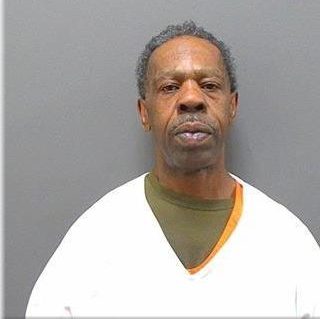JD on hold, a life in limbo
By: SYLVIA HSIEH, BridgeTower Media Newswires//October 8, 2012//
In 2009, when Sergio Garcia thought his future was assured, a question jumped off the page of the moral character questionnaire for his bar application: “Are you a U.S. Citizen, a lawful permanent resident, or what is your status?”
He had answered the question many times before, but, Garcia now recalls, “It was just a shocker to see it there.”
Before he invested in law school, he had asked lawyers and colleagues about whether the question would come up, and all said, “No, you’re in the clear. That’s not part of the bar admission.”
The question had been added only a year before, when Garcia was in his last year of law school, but there was no mention of the change, then or now, on the state bar’s website.
At 35 years old, Garcia is tantalizingly close to a goal he latched on to when he was 10: to become a lawyer. He paid his own way through college and law school, and has passed arguably the hardest bar exam in the country.
One impediment stands between him and his dream of becoming a lawyer.
Garcia is an undocumented immigrant.
He wrote “pending” on the questionnaire, an accurate if optimistic description of an immigration petition filed in 1994 by his father to legalize Garcia’s status; the petition was approved, but 18 years later, he still waits for his green card.
Garcia’s case is before the California Supreme Court on the question of whether he can be admitted to practice law.
A fateful decision
On the two-lane highway leading to Garcia’s home and hometown of Chico, Calif., flatbeds haul hay bales on a stretch that winds 200 miles north of San Francisco. Black, brown and spotted cows stud the farmland. Farther off are the oversized camel humps of sun-dried hills. Row after row of almond trees line the road, their straight trunks contrasted against the bent necks of farmers at harvest time.
Garcia’s father, Salvador, was one of them. He spent years growing almonds in the Mexican state of Michoacan before settling in almond-producing Chico. In 1997, he crossed the border alone, without a dollar in his pocket or a day in a classroom.
After finding work in Chico’s orchards, he sent for his wife, Albertina, and children. Sergio, the second son, was 17 months old and has a vague recollection of a very long bus ride.
When Sergio was 9, his father made a decision that would cause years of friction between father and son – a decision that now separates Garcia from his dream.
It was 1986, and American political winds made full amnesty an option allowing undocumented immigrants to become U.S. citizens.
“My father could have made me a U.S. citizen then,” Garcia says, “but he thought we would go back to Mexico and live as a family.”
The elder Garcia feared that if his son became an American citizen, he would not want to leave when the family eventually returned to Mexico.
Instead, wishing for his son to regain the language he had lost, the elder Garcia sent Sergio, his siblings and their mother, Albertina, back to Mexico. Apa, as Sergio calls his dad, stayed behind to scratch out a living in America, sending money to his family when he could.
‘If I were a lawyer’
A year after returning to Mexico, Garcia witnessed an event that crystalized his dream and put him where he is today.
The family got a knock on the door.
A young family member, not much older than Garcia, was in prison.
No reason was given, except that he was out at night.
No court. No judge. No due process.
“I felt impotent to do anything. I was 10, we didn’t have money,” Garcia says. “I realized ‘I can’t do anything now, but if I were a lawyer I could.’”
The money Apa sent barely covered meals and shoes, never mind an attorney. The only reason for the arrest was because police were looking for a bribe, so the family paid it.
Already an academic ace, Garcia now had a goal: Sergio C. Garcia, Attorney.
When his father summoned him and Albertina back to the United States, the 17-year-old Sergio did not want to go.
“I had become somebody there. I said, ‘No, I’m not going,’” he recalls telling his Apa and Ama. “But in the end, you do what your parents tell you.”
New hope, bad information
When he returned to the U.S., Garcia no longer qualified for citizenship under the amnesty program.
But new hope came when his father, who had legalized his own status, applied for Sergio.
Garcia still remembers the date his I-130 petition was received by the Immigration and Naturalization Service, Nov. 18, 1994.
He asked an INS officer how long getting his green card would take.
About three years – maximum five, he was told.
“I was devastated,” Garcia recalls. “I thought, ‘How am I going to live like this for another three years?’”
The petition was quickly approved. By January 1995, he had it in his hand.
“It was approved so fast,” he remembers thinking, “that maybe they were wrong about taking three years.”
Very wrong.
An applicant with an approved I-130 must wait in line for a visa based on the number of spots allotted to his home country. For Garcia, at last count, he has been in line for 18 years.
In that time, through his own ambition and the support of his community, Garcia has navigated the world as a man without papers.
He’s had a Social Security number since childhood. He’s paid taxes, has no criminal history and has never taken public benefits or a job as an employee.
His status forced him to turn down a well-paying job with utility company Pacific Gas & Electric when he was a teenager.
“I had to lie and say I was too busy. I cried that day. Imagine making $25 an hour when the minimum wage was $4.25,” he says.
To pay for college, Garcia worked odd jobs like selling almonds and walnuts that fell off trees. It took five years to graduate from a two-year community college, because he had to pay $350 per credit rather than register full-time or take out student loans. After college, four law schools offered him full scholarships, including Stanford University, but all withdrew their offers after he told them his immigration status.
His mother suggested the local law school in Chico, Cal Northern. Somewhere he found time to write a self-help book, “Love, Sex & Romance,” whose proceeds helped pay his tuition. The rest he put on credit cards. He still owes $20,000.
Meanwhile, the four immigration lawyers he retained said he could do nothing but wait for that green card.
“The consensus was my visa was way overdue and that it was going to happen any day or any month,” he says. “I kept thinking it was going to be over soon.”
In 2009, he graduated from law school, passed the bar on the first try and then sat down to fill out the bar questionnaire.
An anxious wait
Seven months after Garcia wrote “pending,” he was getting worried.
Why hadn’t he heard from them?
“Congratulations!” said the state bar representative on the other end of the phone. She said he would be a great addition to the bar.
Garcia remembers that “shortly thereafter, practically in the same breath, she said, ‘Let me call you back.’”
She never did.
He called back nearly every month for the next two years.
“I counted 17 times they promised me I was going to be good, that they would get the paperwork straight,” Garcia says.
Exactly how the case got before the California Supreme Court is not clear, even to Garcia’s lawyer, Jerome Fishkin.
What Fishkin of Fishkin & Slatter in Walnut Creek, Calif., knows is that after the Board of Bar Examiners conducted a grueling examination and investigation of his client’s moral character, it found Garcia met all the eligibility requirements and recommended his admission to the California Bar.
On May 16, 2012, a full two and a half years after Garcia filled out his moral character application, the state’s highest court wanted to know whether anything in federal or state law prevents his bar admission in light of his immigration status.
In its opening brief, the Board’s answers favored Garcia’s membership.
Among the dozens of amici, two of Garcia’s detractors say an “illegal” can’t practice law.
“His main problem is he can’t take the oath of office to support the constitution and federal and state laws,” says Larry DeSha of Camarillo, Calif., an amicus and former state bar prosecutor, who opposes Garcia’s admission.
As DeSha sees it, Garcia should go back to Mexico and wait for his visa.
But Fishkin says Garcia is entitled to stay while his green card is pending, and if he left, he would lose his place in line.
Other “friends of the court” overwhelmingly favor Garcia. County, city and state bar associations support his bar membership, as well as the American Civil Liberties Union, seven law school deans, virtually every immigrant rights organization and California Attorney General Kamala Harris.
Harris argues in her amicus brief that Garcia’s bar membership is “consistent with state and federal policy that encourages immigrants, both documented and undocumented, to contribute to society.”
 There is, however, one influential third detractor. The U.S. Department of Justice filed an amicus brief arguing that Garcia’s state bar admission is trumped by a federal law prohibiting states from issuing certain professional licenses to undocumented immigrants.
There is, however, one influential third detractor. The U.S. Department of Justice filed an amicus brief arguing that Garcia’s state bar admission is trumped by a federal law prohibiting states from issuing certain professional licenses to undocumented immigrants.
What’s at stake
A slender, neatly dressed man with jet black gelled hair, Garcia can be found with a cell phone permanently locked in his hand and an upbeat idealism that leaves no room for bitterness despite his odyssey.
If the court denies his admission to the bar, he will have sacrificed years for a law degree he can’t use.
At the current pace of Mexican visa availability, he could easily wait another seven years for his green card. And even if it does come sooner, in two years his successful bar exam results expire. If he still wants to practice law, he’d have to retake the test.
Even if he gets his law license, he still must not violate labor laws such as working as an employee.
Then there’s the looming threat of deportation.
Fishkin says his client is not the type of person the government is looking to deport.
Yet, under President Barack Obama, deportations have hit record highs at 400,000 per year, including many whom critics complain are low-priority deportees.
The ordeal has affected more than Garcia’s career.
He has decided life is too tough to bring children into the world, and has no plans to marry until his status is resolved.
“I would never want to bring my problems onto a relationship,” he says.
Nor will he accept any of the numerous offers from friends to marry him and thus legalize his status.
At 1:30 p.m. on a recent Wednesday, Garcia pulls into Goldilocks Studio in Chico for a trim of head and chin to prepare for speeches lined up at Chico State University, Sacramento State University, a local youth karate school and any other student-filled locale requesting his motivational energy.
“Look! I just got five new hits on my press conference,” says Garcia after 10 minutes in the chair, holding up his cell phone from under his bib.
His hairdresser, Jodi, responds, “I tried to search for your videos online, but all I found was the golfer,” a Spanish-born PGA star with the same name.
Local support does not end there: Chico’s police chief has promised Garcia there will be no problems with his immigration status; the mayor regularly takes him out to breakfast; the owner of the Mexican restaurant lets him eat for free; and an older female patron who calls him “miho” (son) loaned him $100,000 to buy a house and move out of his parents’ home after they received phone calls saying that people like their son should be deported or shot.
A vicarious DREAMer
Today, Garcia is barely employed.
In 2008, he founded a company providing translating and interpreting services to law firms with Spanish-speaking clients. Since his story went public, his client list has dwindled from 100 to four.
With his free time, he launched a foundation to award scholarships to students of any background, citizen or immigrant, documented or undocumented; he is planning a bus tour to spread his message; and he flies nationwide to sign up students for the new Deferred Action program that allows undocumented immigrants like himself to work legally if they came to the U.S. as children and have not broken laws.
He hopes private donors will pay for the scholarships. The California legislature’s Hispanic caucus is footing the bill for the bus tour. The Coalition for Humane Immigrant Rights of Los Angeles covered most of his travel to Los Angeles, Miami, Sacramento and Washington, D.C. to help young immigrants, known as DREAMers, apply for Deferred Action.
Bad timing haunts him. He qualifies for Deferred Action in nearly every way except one. The cutoff age is 30. He is 35.
If he gets his law license, Garcia wants to represent people injured in auto accidents, an area he explored when he provided support services to law firms.
San Francisco attorney Dan Duncan worked opposite Garcia on an auto case in 2009, in which Garcia researched sources of liability for four Spanish-speaking accident victims. Duncan says Garcia “showed a lot of initiative and took responsibility for things that aren’t taught in law school,” such as interviewing the 22-year-old driver of the other vehicle, who was late to work and hit their car, killing one of the four.
“In every aspect of his comportment and dedication to the work, he was outstanding,” says Duncan, who was so impressed he offered Garcia a job at the time.
He only recently picked up a newspaper and learned of Garcia’s troubles.
“I can’t see any realistic justification for denying his admission to practice,” Duncan says. “Where someone is born is not a factor in how someone represents his clients or his knowledge or capability.”
Despite becoming a public figure, Garcia remains private.
“Facebook will tell you I have 1,000 friends,” he says. “In reality I have two.”
Harvest time
August begins almond harvest time in Chico.
At the end of the season, big machines shake the trees to release the ripened nuts.
Locals say “almond” refers to the nut on the tree, whereas “ammond” means the harvested nut.
“Do you know why?” they ask out-of-towners. “Because the machine shakes the ‘L’ out of the almond.”
Hundreds of miles south, briefing has wrapped up at the California Supreme Court, which will soon decide Garcia’s future. If the justices skip oral arguments, the decision could come any day.
Usually by age 20 to 25, almond trees stop producing and are dug up en masse, replaced with new seedlings.
If Garcia gets lucky, the lifespan of an overhaul to U.S. immigration laws will be shorter. The last was in 1996, shortly after he filed his green card application.
Garcia is awake at 4 a.m. each day, flying to a different city, meeting with legislators, giving press conferences, speaking on panels, working with students and motivating young people.
Like the farmers shaking nuts from the pregnant branches of almond trees, he has begun his harvest.
On Sept. 17, Garcia wept after he received a Facebook message from a Los Angeles student, one of the first DREAMers he helped apply for Deferred Action. The student’s application had just been approved. He was cleared to work legally. And Garcia made it happen.
“It’s the reason I get up every morning and put in 19-hour days,” he says. “I don’t want these kids to live my life.”
Legal News
- FBI launches criminal investigation into Key Bridge collapse
- Man charged in slaying after woman’s leg found at Milwaukee-area park
- Minnesota man guilty in fatal stabbing of teen on Wisconsin river, jury finds
- Wisconsin teen sentenced in bonfire explosion that burned at least 17
- Wisconsin man who broke into home, ate victim’s chicken, slept in victim’s bed, receives prison and jail sentences
- Judge refuses to dismiss Hunter Biden’s gun case
- House passes reauthorization of key US surveillance program after days of upheaval over changes
- Milwaukee Police officer traveling to Georgia training retires before facing discipline
- Evers to ask legislature to approve largest increase in state support for UW System in two decades
- 7th Circuit Court of Appeals proposes new rules
- Federal agencies allege toxic work environment for women in new report
- Wisconsin man sentenced for sex trafficking a woman and a minor online
WLJ People
- Power 30 Personal Injury Attorneys – Russell Nicolet
- Power 30 Personal Injury Attorneys – Benjamin Nicolet
- Power 30 Personal Injury Attorneys – Dustin T. Woehl
- Power 30 Personal Injury Attorneys – Katherine Metzger
- Power 30 Personal Injury Attorneys – Joseph Ryan
- Power 30 Personal Injury Attorneys – James M. Ryan
- Power 30 Personal Injury Attorneys – Dana Wachs
- Power 30 Personal Injury Attorneys – Mark L. Thomsen
- Power 30 Personal Injury Attorneys – Matthew Lein
- Power 30 Personal Injury Attorneys – Jeffrey A. Pitman
- Power 30 Personal Injury Attorneys – William Pemberton
- Power 30 Personal Injury Attorneys – Howard S. Sicula











